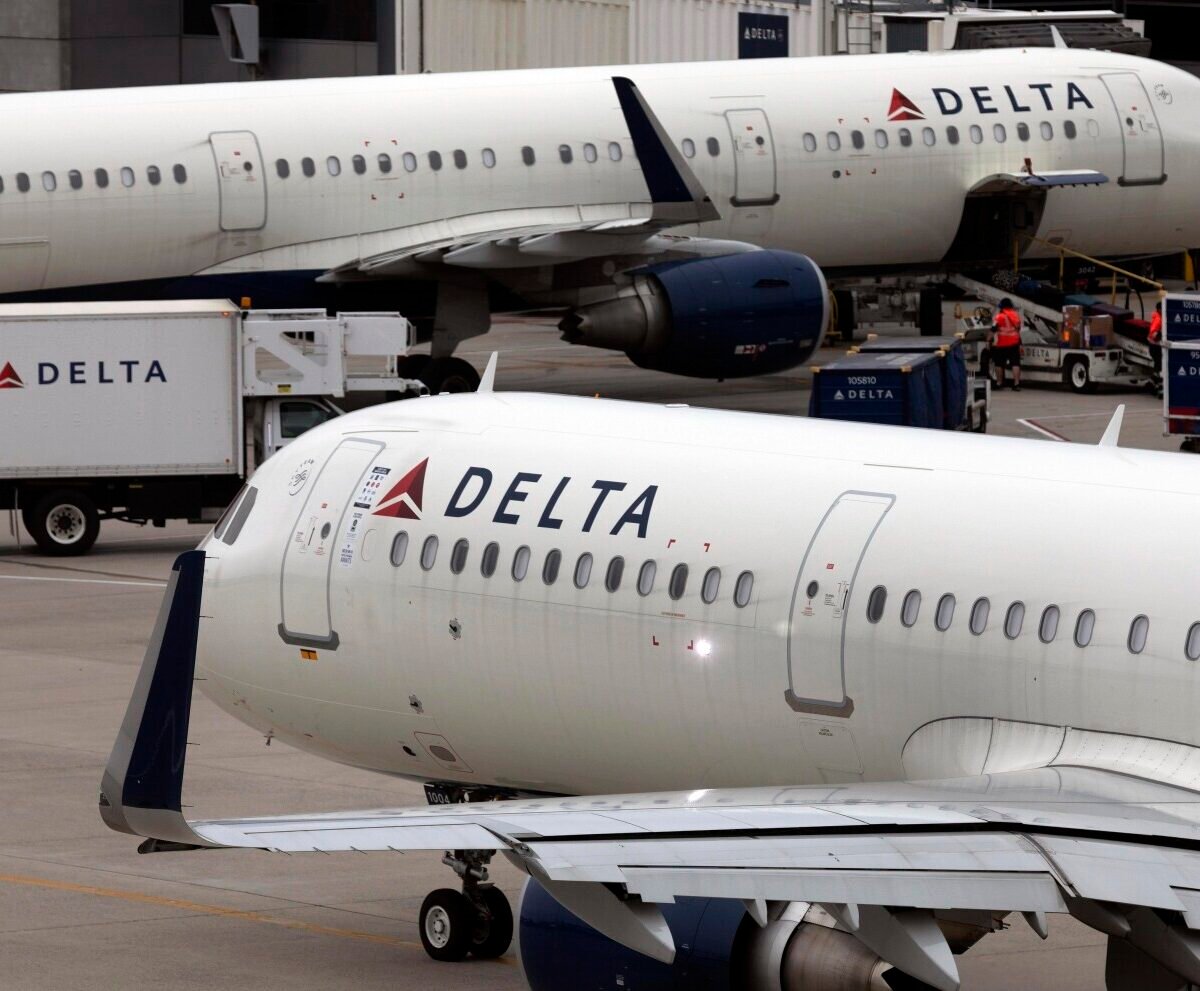A Delta Airlines flight turned into a nightmare for several passengers after they were served spoiled food during their journey. What was supposed to be a routine trip quickly escalated into a controversy as travelers took to social media to share their shocking experiences. The incident has since sparked outrage, raising concerns over airline food safety protocols and the quality control measures in place for in-flight meals.
Passengers Report Rotten Meals
The incident occurred on a recent Delta flight, where multiple passengers noticed that their in-flight meals had an unpleasant odor and tasted off. Some travelers reported finding mold on their food, while others described receiving meals that were visibly spoiled, with discolored meat, curdled dairy products, and stale bread. The experience left many feeling disgusted, questioning how such meals could be served on a commercial airline.
Several passengers immediately alerted flight attendants about the issue. While the crew reportedly attempted to resolve the situation by offering replacements, some travelers claimed that their complaints were not taken seriously at first. Others stated that they were simply told the meals had been stored properly and that no other reports had been made. Despite reassurances, photos and videos of the questionable meals quickly surfaced online, spreading rapidly across social media platforms. The images showed meals with visible signs of decay, prompting outrage among frequent flyers and concerned consumers.
Health Concerns and Passenger Reactions
For many, the incident raised serious health concerns. Spoiled food can cause food poisoning and other digestive issues, leading to discomfort and potential medical emergencies while in the air. Some passengers reported feeling nauseous and experiencing stomach cramps after consuming the meals, though no official medical emergencies were confirmed at the time of reporting. Others stated that they had avoided eating the meals altogether after noticing the bad smell or unusual texture of the food.
Social media platforms were flooded with reactions from both affected passengers and concerned travelers. One passenger tweeted, “I can’t believe Delta served me a meal that smelled like it had been sitting out for days. Absolutely unacceptable!” Another traveler commented, “This is a major health risk. Airlines should be held accountable for ensuring food safety.”
Food safety experts weighed in on the issue, explaining that in-flight meals are typically prepared hours before a flight, transported to the aircraft, and reheated before being served to passengers. While strict protocols should be in place to prevent contamination, this incident suggests that something may have gone wrong in the storage, handling, or transportation process.
Delta Airlines Responds
Following the backlash, Delta Airlines released an official statement addressing the issue. The airline apologized for the incident and assured customers that they were investigating how the spoiled meals made it onto the flight.
“At Delta, the safety and well-being of our passengers are our top priorities. We take food quality seriously and are working closely with our catering partners to ensure this does not happen again,” the statement read.
Delta also encouraged affected passengers to reach out to customer service for further assistance and possible compensation. However, many travelers remain dissatisfied, calling for stricter food safety regulations and more transparency regarding in-flight meal preparation.
Airline Food Safety Under Scrutiny

This incident has once again brought airline food safety into the spotlight. Many passengers assume that in-flight meals are prepared under strict guidelines, but this situation has raised questions about the oversight and quality control of airline catering services.
Industry experts suggest that airlines need to enforce more rigorous inspections and better storage practices to prevent such incidents. Food safety advocates are urging regulatory bodies to impose stricter guidelines to ensure that airline meals meet the highest standards.
In response to growing concerns, some aviation experts are calling for third-party audits of airline catering services. Such audits would help ensure that all meals served on flights meet health and safety standards. Airlines may also need to invest in better refrigeration systems and improved training for staff responsible for food handling and preparation.
Similar Incidents in the Past
Unfortunately, Delta Airlines is not the first airline to face criticism over in-flight meal safety. Over the years, there have been multiple reports of passengers encountering spoiled food, foreign objects in their meals, or even incidents of food poisoning. In some cases, airlines have been forced to issue public apologies and revise their food safety policies.
One notable case occurred in 2018 when passengers on an international flight reported finding insects in their meals. The airline involved faced major backlash, and the catering company responsible was investigated for failing to meet hygiene standards. Similar incidents have been reported across various airlines, showing that food safety remains an ongoing issue in the aviation industry.
With the Delta incident now making headlines, many passengers are demanding change. Frequent travelers are urging airlines to adopt stricter protocols and conduct more frequent inspections to prevent spoiled or contaminated food from being served on board.
What Happens Next?
As Delta Airlines continues its investigation, passengers are demanding accountability and assurance that such an incident will not be repeated. The airline is expected to review its food handling procedures and potentially implement new measures to prevent future occurrences. These measures may include enhanced quality control checks, stricter oversight of catering partners, and better communication between flight crews and passengers regarding food concerns.
For now, this serves as a reminder to travelers to be cautious when consuming in-flight meals and to always report any concerns immediately. With growing awareness of airline food safety, passengers hope that this incident will lead to better practices across the industry. Some advocacy groups are already pushing for new legislation that would require airlines to disclose information about their food suppliers and their safety protocols.
Meanwhile, other airlines may take note of this controversy and proactively strengthen their own food safety measures to avoid similar issues. The airline industry as a whole could see major shifts in catering operations if more passengers continue to raise concerns and demand transparency.
Final Thoughts
While Delta Airlines has promised to take action, only time will tell if the airline will implement lasting changes to improve its food safety standards. Passengers who experienced the spoiled meals firsthand will likely continue to speak out until they see meaningful improvements. The incident serves as a wake-up call for the entire aviation industry, highlighting the importance of proper food handling and quality control.
Until then, travelers may think twice before accepting in-flight meals, opting instead for snacks they bring from home. One thing is certain—airline food safety is now under the microscope, and passengers around the world will be watching closely to see how Delta and other airlines respond to the growing concerns.
Tennessee vs. Ohio State: A Thrilling Battle That Shocked Fans






